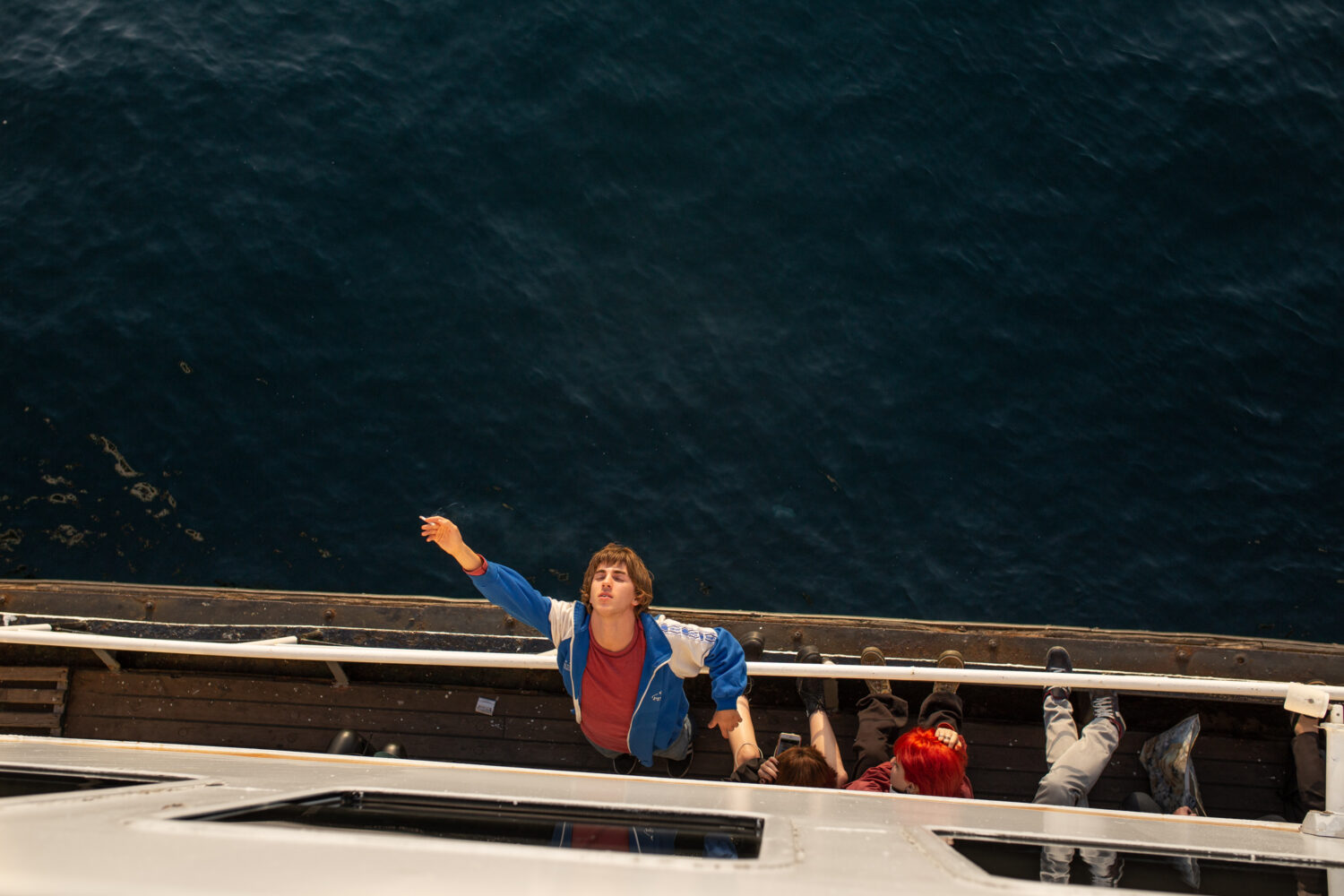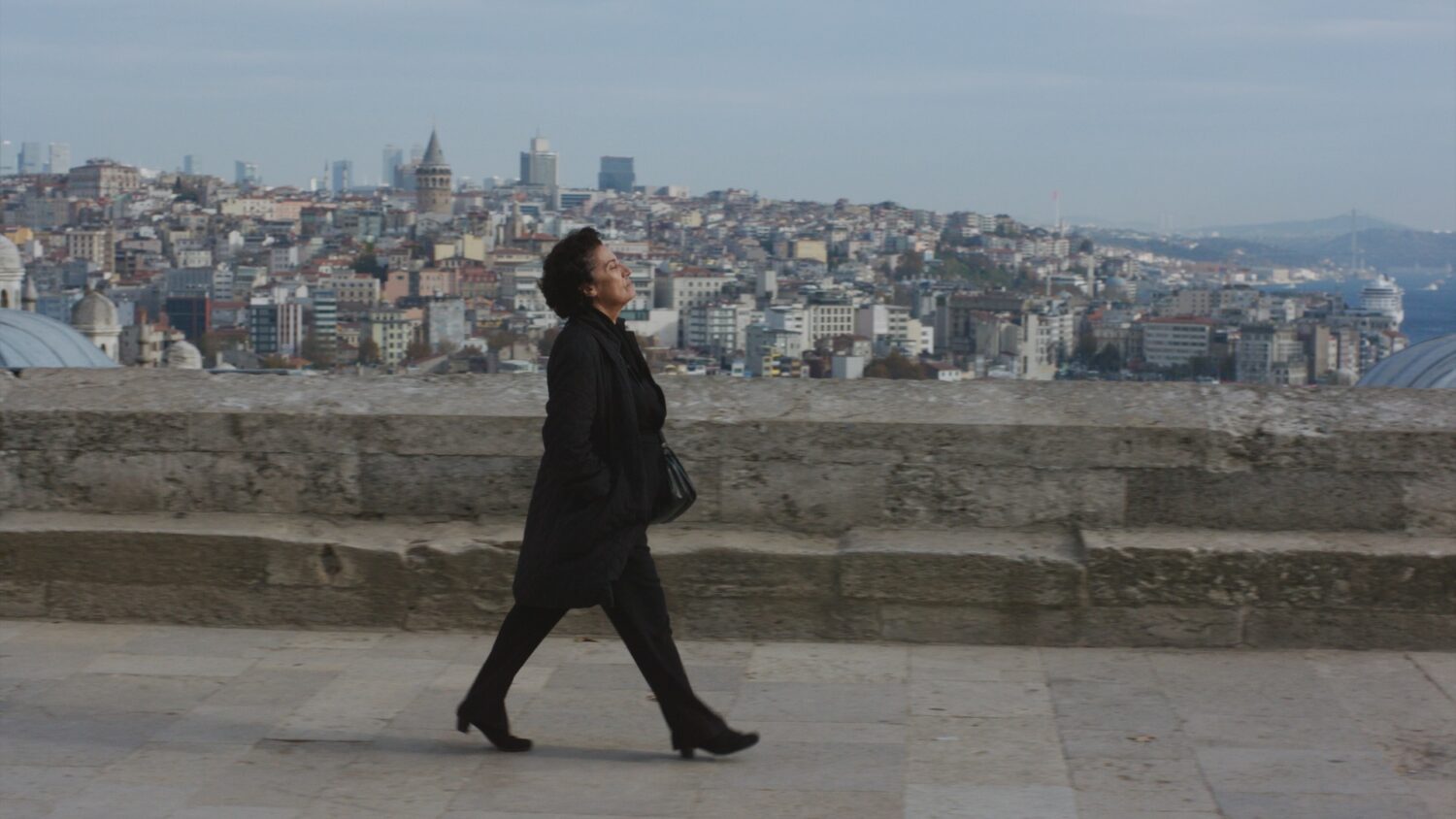‘Crossing’ Review: A Stirring Study in Catharsis and Allyship
By Rida BilgramiCrossing, the fourth feature film from Swedish-Georgian director and screenwriter Levan Akin, is at its heart an immersive quest for connection and catharsis. The film opens in Batumi, the port city on the Black Sea coast of Georgia where retired schoolteacher Lia (Mzia Arabuli) begins a journey to Istanbul accompanied by Achi (Lucas Kankava), a young man desperate to escape a bleak domestic life. Honouring her sister’s dying wish, Lia is in pursuit of her estranged niece Tekla, whom the family ostracised because of her trans identity. Achi tells Lia he has Tekla’s address in Istanbul and offers to accompany her as a guide and translator. She reluctantly agrees.
Much of the film’s poignancy and humour comes from the shifting contours of companionship between two strangers in an unfamiliar city – a garrulous teenager who lacks a sense of purpose but sees a world of possibility; alongside a stoic woman in her 70s, jaded in spirit and engulfed in guilt whose world has shrunk around her. During the final part of their journey to Istanbul Lia and Achi board a ferry across the Bosphorus. A handheld camera surveys a ferry in a long, continuous shot and settles on a woman gazing towards the sea with a cigarette in her hand. The trans protagonist of the film Evrim (a stunning debut from Deniz Dumanl), an activist and lawyer, comes into view.

It is much later in the story that Lia and Achi eventually meet Evrim after exhausting all other avenues of finding Tekla. Before they meet there is a sense of ambiguity whether Evrim may be Tekla, masquerading under a different name. Evrim is on a journey as well, which offers a glimpse into the lived-in reality of dating and navigating a professional life as a transwoman. In the process of transitioning and obtaining her new ID she experiences considerable red tape and institutional hostility. Yet she embodies both fearlessness and levity brought to life by Dumnl’s magnetic screen presence. She intervenes when police pick up one of two young street kids seen busking for tips; we observe her interactions within the close-knit trans sisterhood along with her blossoming romance with an unlicensed taxi driver who, unlike other cis men she encounters, treats her with dignity and respect.
Istanbul, the final destination for Lia and Achi and Evrim’s home city, opens up in a novel way in Crossing. Cinematographer Lisabi Fridell sketches a verité portrait of Tarlabaşı, the trans-quarter where Lia and Achi search for Tekla. Despite its crumbling infrastructure and dense housing, a thriving social ecosystem stitched together with mutual care and kinship outside of traditional family structures is apparent. This is most evident when Evrim, who works for Pink Life, a trans activism organisation, sensitively handles Lia’s enquiries about Tekla’s fate and questions whether she even desires to be found by her blood relatives. Snippets of dialogue are in Lubunca, a language spoken by people from within the queer community. Crossing doesn’t gloss over the prejudices and bureaucracy that social outcasts face, but it tends to emphasise the humanistic elements of this existence and the possibility of new models of belonging. Lia speculates that Istanbul is a place where people come to disappear. But Crossing also depicts the city as a portal to serendipitous encounters – a place of connection and catharsis.
In a Q&A following a preview screening of the film in London last week, Akin noted that Crossing is a companion film to his critically acclaimed third feature And Then We Danced, a sensuous drama of queer desire set in Tbilisi that unravels in the conservative confines of a Georgian dance ensemble. While researching And Then We Danced he heard a real-life story about a grandfather who would travel from his village to the city to share a meal with his trans grandchild after she had been rejected by the family. This act of intergenerational allyship was the kernel for narrating a story from the perspective of a relative of an LGBTQIA person and the internal journey towards acceptance.
Akin, who also co-edited and wrote Crossing, acknowledged the need for bringing queer stories from non-Western contexts to the cinematic medium but is mindful that they shouldn’t be didactic. To that end, Crossing rarely feels like it’s preaching or offering social commentary. Akin’s attention to observational detail means his characters are much more than representatives of a single social identity. A series of scenes shared between Evrim, Lia and Achi communicate more through movement than words: They dance, drink, and break bread, together inhabiting a slice of time. In a tender scene, Evrim is filling out paperwork at a hospital to affirm her new gender identity when she is interrupted by a stray cat who climbs into her lap. She pauses to caresse the cat – a gentle nod to all that remains unaltered even in the midst of existential change.

In the hands of a less skilled storyteller and less gifted actors the pairing of two misfit companions on a journey – each working towards an end goal – could have been predictable, even tropey. But Crossing doesn’t allow itself to enter the territory of sentimentality nor offer neat character arcs, breakthroughs or resolutions. When Lia and Achi comb through the streets of Istanbul, Lia expresses disbelief after visiting the trans neighbourhood. “So this is the life she chose,” she cries, before Achi replies, “I hardly think it was a choice.” A moment of stunning clarity and empathy from Achi that nudges Lia to soften her outlook. Although there are glimpses of a nurturing spirit, Lia never fully transforms into a maternal figure for Achi and their paths don’t necessarily converge at the end. Instead, Akin inspects the shape of meaningful connection in an increasingly divisive world and how it can enlarge the world of others. To do so may mean crossing some boundaries, shedding prejudice, and revealing some desires.
Rida Bilgrami is a writer based in London. Her work spans poetry, essays and reported features with a focus on travel, books, visual culture and cities. Header image by Ozan Acidere.